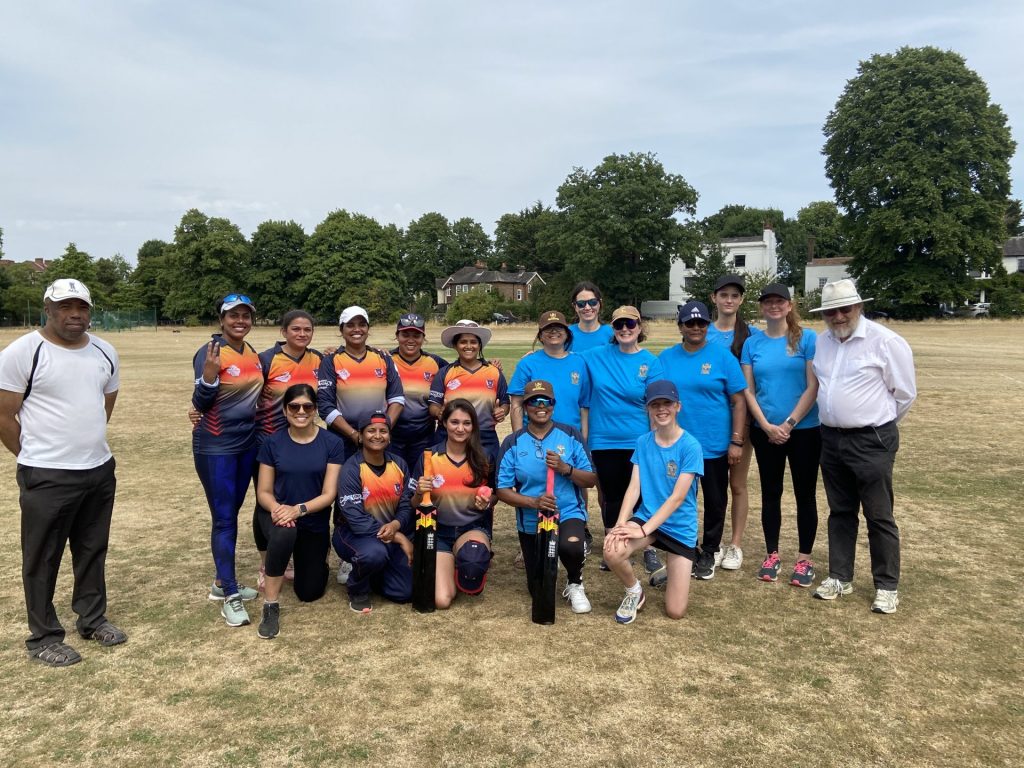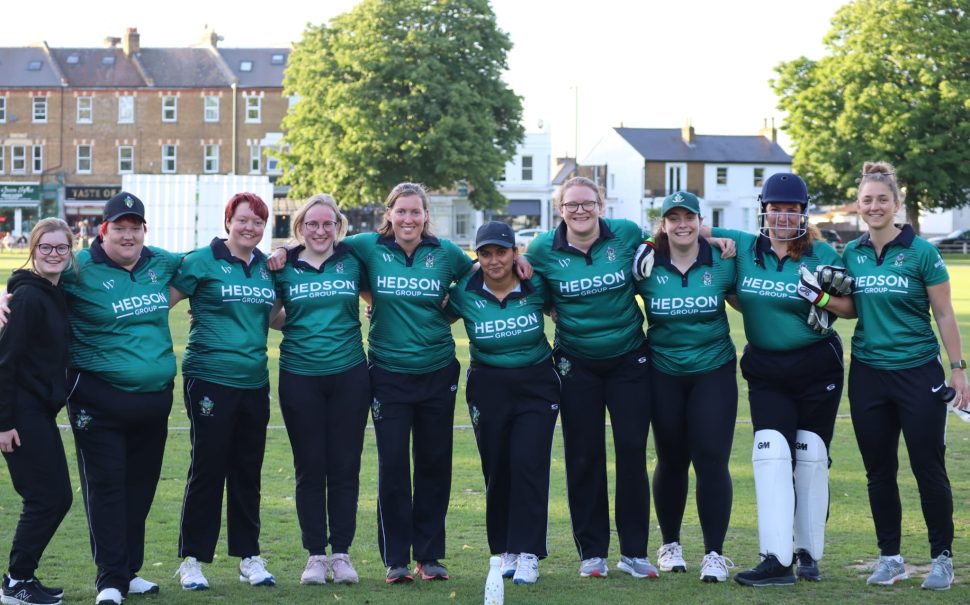“The game was taken on its merits; we were taken for granted as cricketers. I got the answer I wanted to my questioning – Women’s Cricket has arrived.”
You might presume this quote was taken from any number of historic moments in Women’s Cricket in recent memory.
Perhaps when Charlotte Edwards captained England to World Cup glory in 2009? Or when Anya Shrubsole took the last Indian wicket to repeat the feat eight years later at Lords? Maybe even in 2020, when over 86,000 attended the Women’s T20 World Cup final between Australia and India at the MCG?
Each time you would be wrong. The quote, in fact, is from a book entitled ‘Women’s Cricket’ by Marjorie Pollard.
The match in question was between Surrey Women’s Cricket Association and the Australian Women with 10,000 people reportedly in attendance.
The match took place in 1937 on Mitcham cricket green in South London.
For a club like Mitcham Cricket Club, whose records date back to the 18th century, it is rather remarkable that the most infamous match to take place on their green was between two women’s sides over 75 years ago.
And it, therefore, will come as quite a surprise to also note that Mitcham played their first women’s cricket match just this year.
“It is quite an amazing thing but slightly extraordinary that a club with as long a history as Mitcham never formulated itself into having its own Women’s team until now,” Julia Gault, Mitcham Sapphires captain said.
Gault has been ever-present at Mitcham Cricket Club since her sons joined in the mid-noughties. From scorer to driving juniors, club secretary, and coach – she’s done it all.
But in 2018, after a surge of women joining after the World Cup success, she added another job title to her cricketing CV – women’s captain.
Despite coronavirus-related delays, the Sapphires eventually made their competitive debut in a softball match against Croydon cricket club in July this year.
Looking back on the historic event, she said: “It was exciting to be taking part in something really historic and it does bring a lot of pride.”
Whilst Mitcham’s women’s cricket side may be in its infancy, other clubs in south London can proudly boast a trailblazing history.
Just 10 miles east, Twickenham Cricket Club is one such club. In the summer, nine former and current players were awarded county caps by Middlesex and Surrey.
Sarai Knight, Twickenham CC’s women’s captain said. “Some of those people really were pioneers for women’s cricket.
“You are talking about women who were having to play in skirts in the ‘60s and ‘70s when it really wasn’t the done thing. They really had to overcome a lot of barriers to play cricket – the sport they love.
“We are very lucky we have such a strong history and we try and honour that as much as we can by keeping going and encouraging grassroots cricket.”
Their legacy has continued with Twickenham CC seeing a huge spike in female members after the coronavirus pandemic.
Knight said: “We had lots of players join us in the summer of 2020 and 2021 which was absolutely incredible.
“Lots of them were women who had played at school who were coming back to it for the first time in over ten years. Others were women who had never played it and thought ‘yeah I’d like to give it a go.’
“We just rolled with it really. We pride ourselves on being a welcoming environment for women and we work really hard to bring on board women who haven’t got experience to learn new skills and get that experience of playing cricket.”
The task now for both clubs is to ensure the momentum does not stall but the early signs are encouraging.
At Mitcham, the popular all-girls summer camps aimed at youngsters are being continued next season whilst Knight admitted that members of her Twickenham side are booking winter nets off their own back, such is their yearning for cricketing action in the off-season.

Despite all of this, though, both captains are acutely aware that plenty still has to be done to make women’s cricket more welcoming and to truly harness its potential.
Mitcham captain Gault said: “One of the issues we have is a very old-fashioned pavilion and therefore our facilities for women are not as sophisticated as the facilities we’ve got for men which is something we want to raise the money to change.
“Even just doing simple stuff like making sure we’ve got pictures of female cricketers up in the pavilion and celebrating that as well is vital.”
And at Twickenham, Knight has felt hugely encouraged by the steps the club has made to ensure that women feel welcome.
“The club do a lot for the women’s team. They want the women’s team to flourish but it is ongoing progress and it takes a lot of work to change an environment that has historically been male.
“Any sport that has a background of being male-dominated will be daunting for women to come and explore and I see that very much as my role as captain to make that accessible and make it clear that we stand for inclusion and fairness.”
It’s encouraging steps but unfortunately, not all of grassroots cricket has been as proactive in looking to change the attitudes of its members towards female participation.
Both captains speak of playing matches on third-rate pitches and enduring overbearing male umpires last season and it’s a necessary reminder of the continual work that needs to be done to combat sexism within cricket.
This particular issue, in a large part, is what led to the founding of Her Game Too.
Initially focusing on football, the campaign expanded its movement to cricket after being approached by Gloucestershire County Cricket Club.
Co-founder Lucy Ford said: “‘Our main aim on both signs is to create that safe space for female fans to watch games in stadiums but also to participate at grassroots as well.”
Their campaigns on social media, alongside partnerships with professional and grassroots clubs, have allowed the movement to spread its reach and increase visibility surrounding such issues.
But there is still plenty to work to do, which Ford acknowledges.
She said: “The county and grassroots partnerships have all been really positive so far but it is important to continue [our work] because sexist attitudes aren’t going to change overnight.
“We want to continue to work until there isn’t this minority making these comments and making women feel like they can’t watch or play the sport because of their gender.
“It would be amazing for a young girl in ten, twenty years to be in sport, in whatever capacity, because they were brought up in a world where sport is for them and they could participate.”
Marjorie Pollard may have jumped the gun when she declared women’s cricket “had arrived” in 1937. But, the passion that is evident within south London’s women’s cricket community should ensure that the sport can thrive in the years to come.
Featured image credit: Mitcham CC





